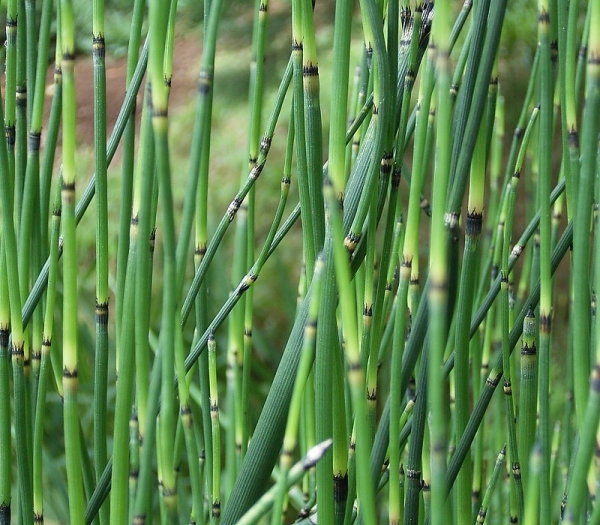Southern Giant Horsetail
(Equisetum giganteum)
Southern Giant Horsetail (Equisetum giganteum)
/
/

Frank Vincentz
CC BY-SA 3.0
Image By:
Frank Vincentz
Recorded By:
Copyright:
CC BY-SA 3.0
Copyright Notice:
Photo by: Frank Vincentz | License Type: CC BY-SA 3.0 | License URL: http://creativecommons.org/licenses/by-sa/3.0/ | Uploader: Ies | Publisher: Wikimedia Commons | Title: Equisetum_giganteum_2_ies.jpg | Notes: == Summary == {{Information |Description= ''Eremophila alternifolia'', Geelong Botanic Gardens, Victoria, Australia |Source= self-made |Date= January, 2007 |Author= [[:en:User:Melburnian|Melburnian]] |Permission= |other_versions= }} == Licensing == {{sel |












Estimated Native Range
Summary
Equisetum giganteum, commonly known as Southern Giant Horsetail, is an evergreen perennial herb native to wetlands, including marshes, riverbanks, and moist open areas in South America, Central America, the Caribbean, and Mexico. It is one of the largest horsetails, with hollow, jointed stems that can grow 2–5 meters (6.6–16.4 ft) tall. The stems are green with black bands, giving them a bamboo-like appearance. Southern Giant Horsetail reproduces both by spores and vegetatively by rhizomes, which contributes to its potential invasiveness.
This plant is valued for its architectural form and prehistoric appearance, making it a striking feature in water gardens, bog gardens, and large containers. It thrives in full sun to part shade and requires consistently moist or wet soil conditions. While it does not produce flowers, its stems are visually appealing throughout the year. In cultivation, it is important to control its spread as it can become aggressive, particularly in areas with ideal growing conditions. To prevent unwanted spread, it can be grown in containers or areas with barriers. Equisetum giganteum is also used in phytoremediation projects due to its ability to absorb heavy metals from contaminated soils and water.CC BY-SA 4.0
This plant is valued for its architectural form and prehistoric appearance, making it a striking feature in water gardens, bog gardens, and large containers. It thrives in full sun to part shade and requires consistently moist or wet soil conditions. While it does not produce flowers, its stems are visually appealing throughout the year. In cultivation, it is important to control its spread as it can become aggressive, particularly in areas with ideal growing conditions. To prevent unwanted spread, it can be grown in containers or areas with barriers. Equisetum giganteum is also used in phytoremediation projects due to its ability to absorb heavy metals from contaminated soils and water.CC BY-SA 4.0
Plant Description
- Plant Type: Herb
- Height: 3-5 feet
- Width: 2-3 feet
- Growth Rate: Moderate
- Flower Color: N/A
- Flowering Season: Winter
- Leaf Retention: Evergreen
Growth Requirements
- Sun: Full Sun, Part Shade
- Water: High
- Drainage: Medium
Common Uses
Erosion Control, Low Maintenance, Water Garden
Natural Habitat
Wetlands, including marshes, riverbanks, and moist open areas
Other Names
Common Names: Giant Horsetail, Cola De Caballo
Scientific Names: , Equisetum giganteum, Equisetum ramosissimum, Equisetum pyramidale, Equisetum xylochaetum, Equisetum martii, Equisetum bolivianum, Equisetum giganteum var. caracasanum, Equisetum lechleri, Equisetum araucanum
GBIF Accepted Name: Equisetum giganteum L.